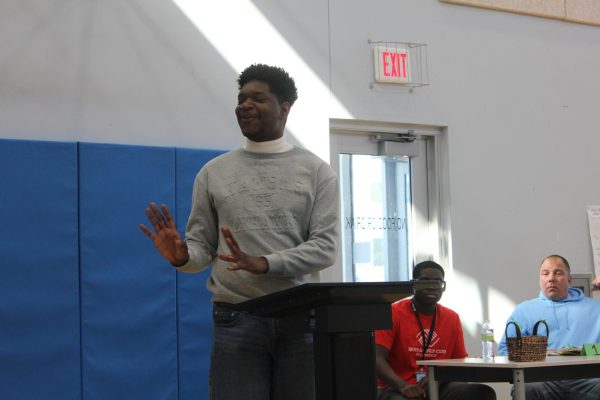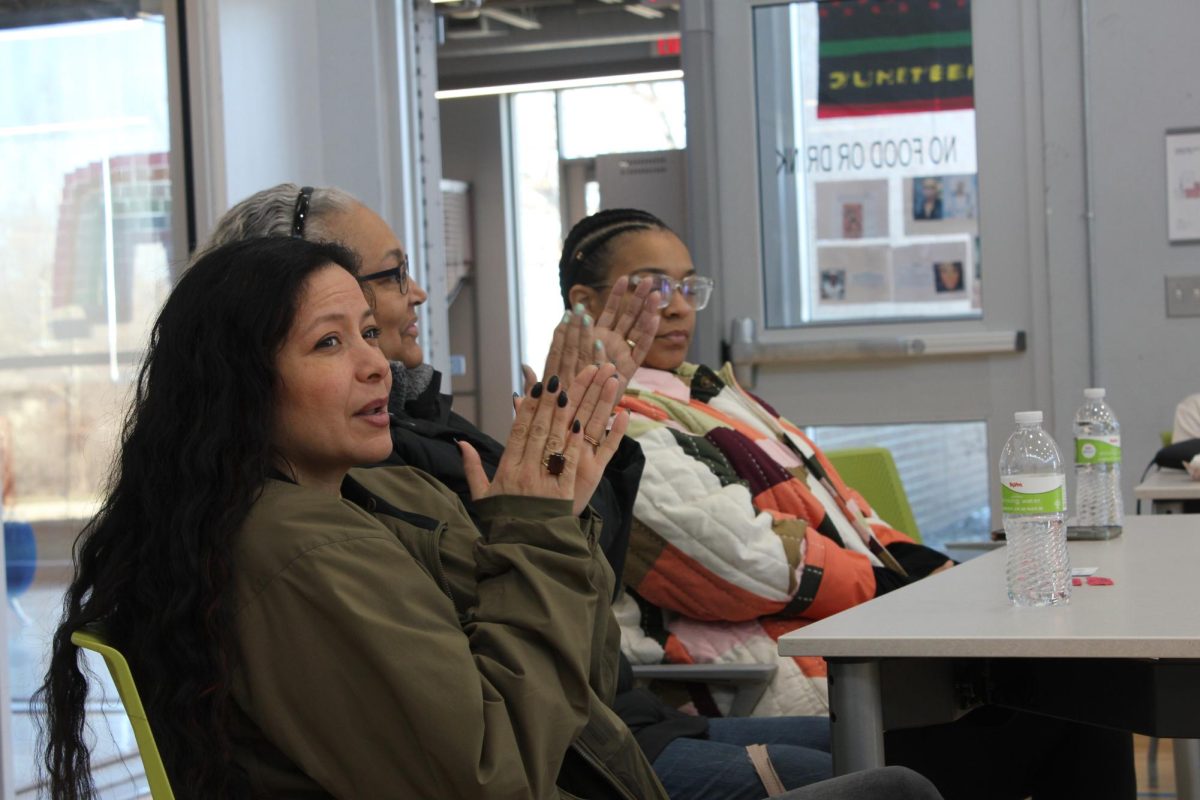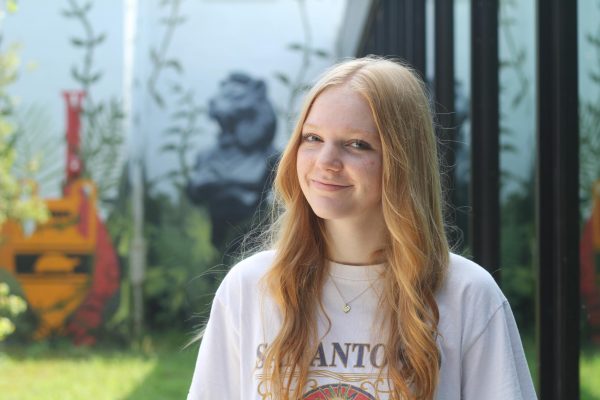Lawrence and USD 497 still face problems with racial disparities for students and staff, regardless of its relatively progressive image, students and parents noted during a community event last weekend.
These issues are exactly what inspired juniors Arabella Gipp and Ohene Danos to put on an event to bring awareness to academic racism. Drawing in speakers from Lawrence High, Boys & Girls Club staff and local business owners, the event gave speakers a chance to highlight their experiences in district schools.
“I was motivated to host this event when I came to realize how much is untold or unsaid just inside of our schools,” Danos said. “Hearing about and seeing things between both schools was enlightening and made me want to explore more.”
Gipp and Danos are both longtime members of Lawrence Boys & Girls Club and part of the Keystone Club, a program within BGC that provides leadership experiences for people ages 14-18.
“Keystone Club has a national project every year, and you have to plan an event based on that year’s theme. This year is around race and racism,” Gipp said. “We chose to do an academic racism awareness because it has been a heavy topic in our club and in a lot of our conversations.”
Gipp used the motivation of her own experiences as Standing Rock Sioux to shape planning for the event.
“Being a lighter-skinned native I have experienced a lot of academic racism but because people assume I am white they say sly comments,” Gipp said. “I have been around district staff that have used the word ‘powwow’ as a negative meaning while we were being disruptive. The excuse is that it was ‘what they were taught.’ So they can learn and adapt to technology but not on what is racist to say? They are excusing purposeful ignorance.”
Among the speakers were parents, graduates and current students who described the challenges they had as people of color in district schools. Art Love Collective co-owner and Black:30 president Taylor Overton described her challenges advocating for herself both as a student with a learning disability and a person of color.
“My mom did advocate for me to have the resources I needed for all of my accommodations and disabilities,” Overton said. “Because I was a Black student, I didn’t think I could be a Black student with disabilities. I didn’t think I could be a Black student who needed support.”
Speaker Donnovan Dillon grew up in Lawrence and Leavenworth schools fighting for a place in the gifted program, having to continually prove for more than three years that he deserved to have his IEP after returning to USD 497.

“Despite my scores, my parents advocating, I was in testing for a total of three years before I was identified as gifted again,” Dillon said. “What’s even more awful is during those three years I was the only student in a guided studies in the gifted room but wasn’t considered gifted. I wasn’t considered gifted and was the only Black student in the room.”
Lawrence BGC Board member Elwood Ott also touched on his education and experience being Native American, and how cultural traditions impacted how teachers perceived him as a student.
“They didn’t realize my quietness, not looking them in the eyes, my not shaking hands, came from cultural tradition, versus me being slow,” Ott said. “My elementary school years I was at a magnet school, and I grew up in Section 8 housing. For the longest time, we had a stigma that we weren’t going to break the cycle, like getting in trouble or not contributing to economic society.”
The event was well received, with all speakers expressing their gratitude for the younger generations continuing to fight for themselves and their classmates.
“Understanding when and where to advocate for yourself is very important,” Overton said. “Telling students the way you advocate for yourself today is the same way you will when you enter the workforce. Being able to speak up for you or for someone else is imperative.”





